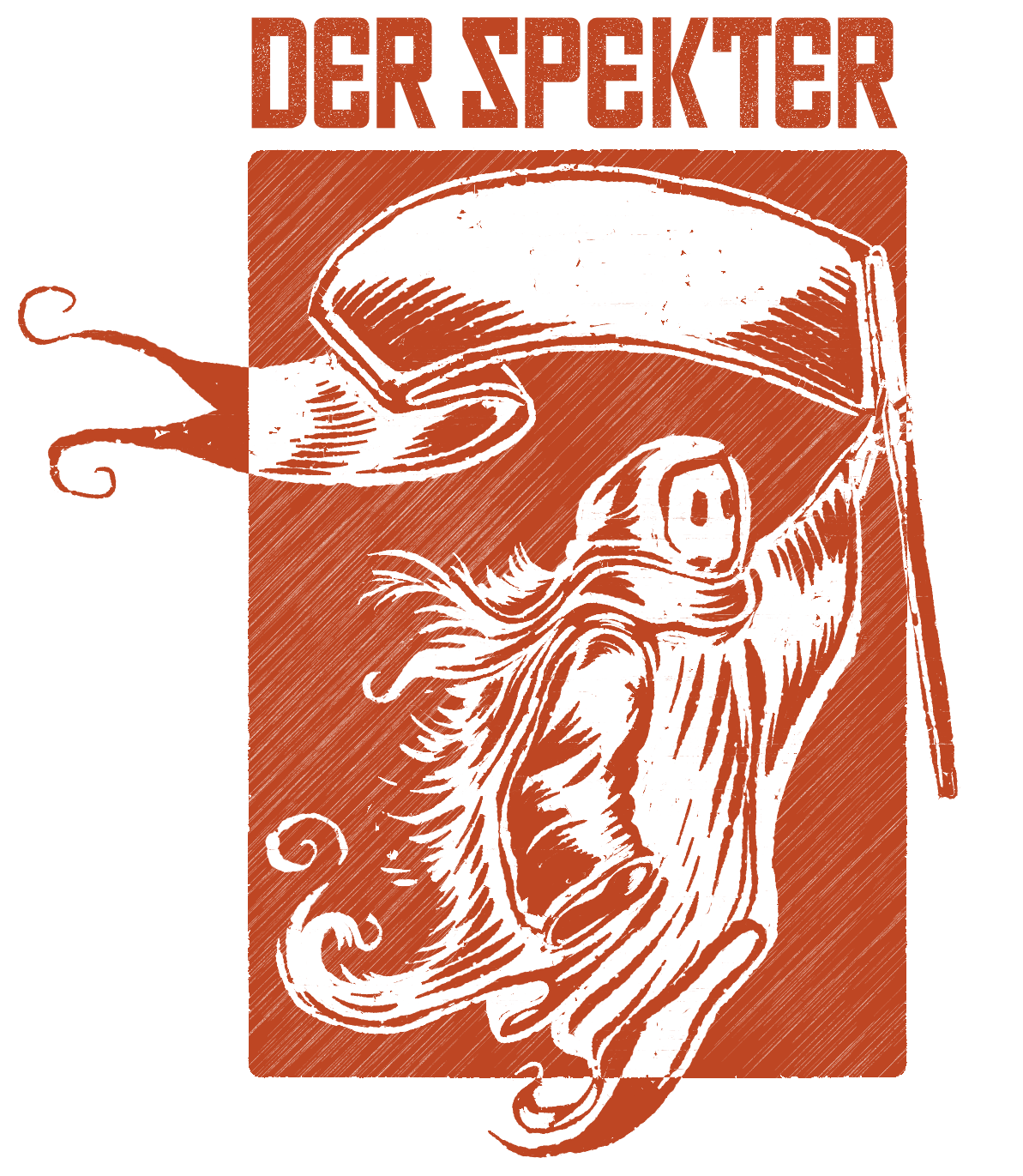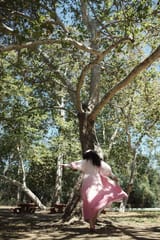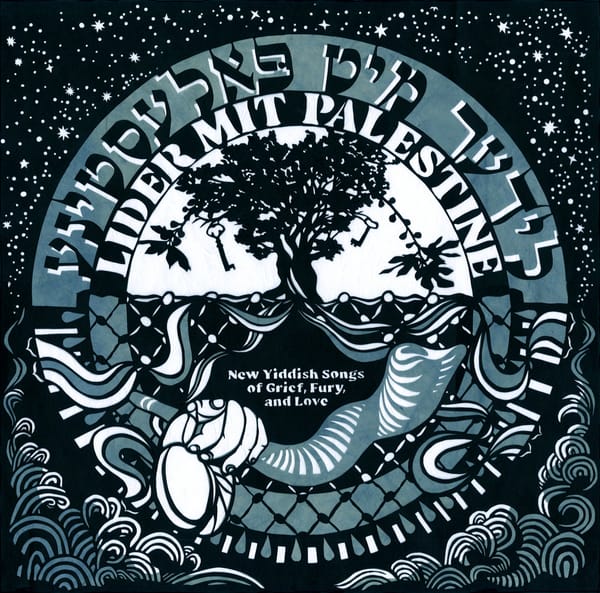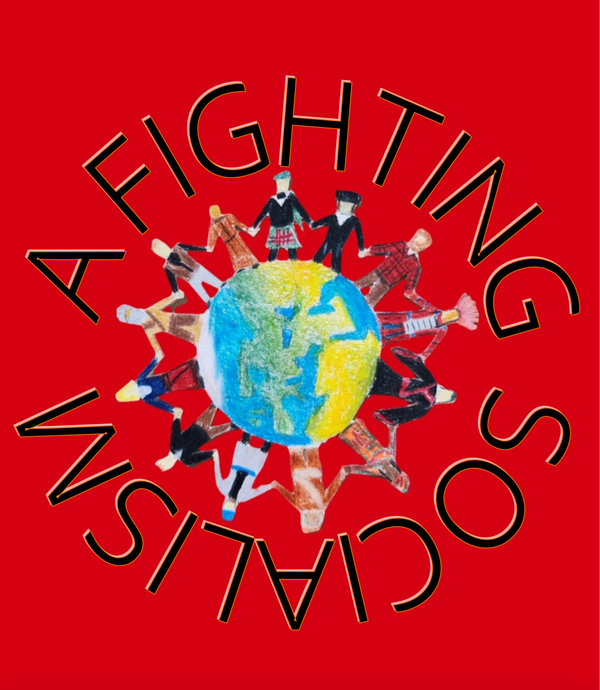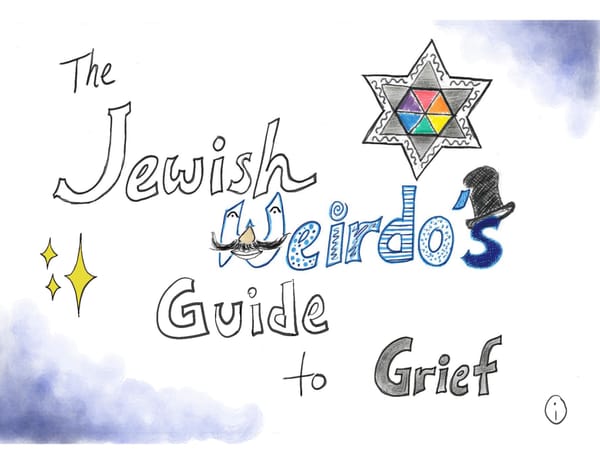Why the Left Should Embrace Jewish Tradition
We cannot cede Jewish religion to the far right
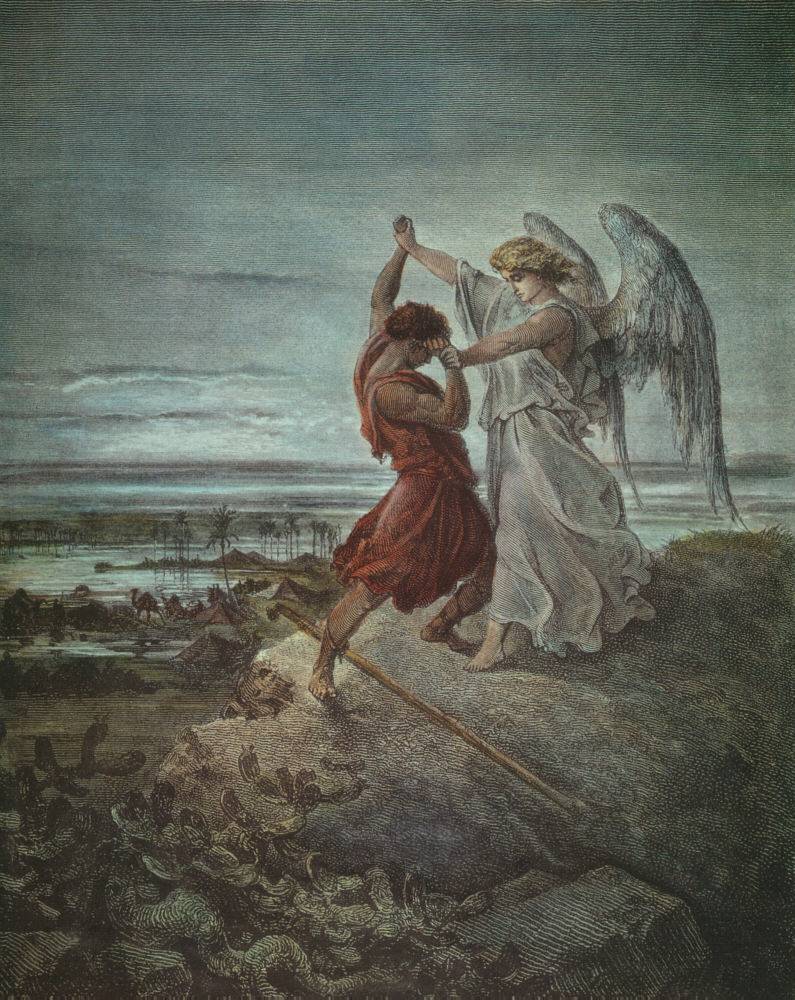
The Jewish left is facing a problem: in the years after October 7th, 2023, with the most extremist ideologies of Zionism normalized and even required within mainstream Jewish spaces, Judaism is increasingly associated with the political right by both Jews and non-Jews.
The Jewish left has always been a home for non-observant* Jews. Members of the Jewish Labor Bund popularized the idea of “Doikayt,” meaning “hereness” in Yiddish. Doikayt opposes the notion that Jews must flee to another place and instead advocates for remaining where Jews are and fighting for our safety in our communities. Bundists were famously non-religious, but so were the first Zionists. The propagators of the Zionist movement — Theodor Herzl, Max Nordau, Ze’ev Jabotinsky, Eliezer Ben-Yehuda — were firmly anti-religion. They saw pious Jews as pathetic, weak, backwards. The remnants of the Old Ways that needed to be eradicated.
Nordau, Herzl’s second in command and the creator of Muskeljudentum (literally “muscular Judaism”), an ideology that fundamentally shaped the vision of the "New Jew" of the Zionist project through its overemphasis on physical fitness, masculinity, and aggression and rejection of scholarship, piety, religiosity, and any behavior it deemed as “of the ghetto.” Nordau is quoted as saying, “When I reached the age of fifteen, I left the Jewish way of life and the study of Torah. Judaism remained a mere memory, and since then I have always felt as a German and a German only."
As Jerry Klinger writes, “[Nordau and Herzl] were highly assimilated, anti-religious Jews. They were Jews only because they could not shake their branding as Jews. Both struggled with the Jewish question and how to solve it. Herzl toyed with a mass conversion of the Jews at St. Stephen's Cathedral in Vienna. Nordau sought universalism.”
Eliezer Ben-Yehuda, who is credited with the revival of Hebrew as a daily spoken language, was so far removed from his roots that he and his wife actively cosplayed as frum Jews as they aimed to infiltrate Yishuv communities to convert them from Yiddish to Hebrew. Their poor attempt at dress-up (complete with peyot and sheitel) was immediately noted by locals, who had absolutely no interest in their mission. The local Jewish community went as far as to declare a herem, excommunicating him and his family.
This decision wasn’t shocking within the context of Jewish history. As David Saiger writes, “For Ben-Yehuda, nationalism became a way to embrace Hebrew without religion.” There was nothing more sacrilegious to the Jews he was so desperate to convert, even while viewing them as pathetic weaklings.
In the early days of Zionism, it was only the non-observant Jewish community that embraced the movement; indeed, our religious leadership rejected it as blasphemous, immoral, and against the fundamental understandings of Judaism. The Jews of the Old Yishuv shunned and resented the early Zionists for their staunch secularism. There was little to no support for Zionism in Germany, Prague, France, or other strongholds of Jewish life during the era. Spiritual leaders like the chief Viennese rabbi, Moritz Gudemann, rebuked both Herzl and Zionism. Zionism’s core philosophy went against sacred Jewish texts instructing us to remain in exile until the time of the Messiah, and even worse for some, Zionism promoted assimilation. As Walter Laquer writes, “Zionism was depriving the Jewish nation of its real cultural content by borrowing modern nationalism from Western Europe. Thus it had embarked on the worst kind of assimilationism.”
But in the last 100 years, we have witnessed a momentous and radical shift. What was once considered heretical by religious leadership has now become synonymized with Judaism in the eyes of the public, both Jewish and non-Jewish.
Non-Jews have become empowered to feel that they are the arbiters of Jewish identity, and more and more, they declare that support of Israel and conservatism is the modern hallmark of what makes a person a Jew. Despite Jewish Senate Majority Leader Chuck Schumer’s fierce Zionism and dedication to the state of Israel, Donald Trump felt empowered to declare that Schumer “used to be Jewish. He’s not Jewish anymore. He’s a Palestinian,” when he deemed Schumer’s pro-Israel advocacy inadequate. This is, by design, empowering the right into further positions of cultural power over who gets to be a Jew and narrowing the field to only those who aid them.
The ramifications of this are terrifying. Sukkot built by Jews who do not support Israel are torn down on college campuses. Non-Jews are at times given preferential treatment in discussions of antisemitism, as in the Heritage Foundation’s Project Esther, despite the denunciations by Jewish organizations and leaders across the political spectrum, from JVP to the former national chair of the Anti-Defamation League. Antisemitic Christian Zionists like Mike Huckabee and Pastor John Hagee are invited to speak at Jewish events, even though the latter has gone on record with his beliefs that Hitler was a “hunter” sent by G-d to bring the Jews back to Israel, that Jews are spiritually dead, and that the anti-Christ will be half Jewish, just as he proclaimed Hitler was.
Within our community, observant Jews in the Diaspora and in Medinat Yisrael have embraced Zionism, going so far as to conflate all of Judaism with Zionism. All across social media, you will find the claim that Zionism is “just Judaism,” spitting in the face of the ancestors who fought so hard against this ideology. Jews who disagree are called “kapos,” “Hamas lovers,” “shanda” or “shande fur die Goyim,” self-hating, traitors, and far worse. Jewish institutions throughout the Diaspora have made Zionism a part of their creed; they host IDF soldiers, place Israeli flags on the Bimah, include prayers for Israeli politicians in worship, and synonymize the ancient texts of Judaism with the state formed in 1948. Tzedakah boxes (religiously mandated mutual aid) designated for the Jewish National Fund – a ‘green’ organization whose sole purpose, as declared during its formation at the fifth Zionist congress, is to acquire land and property for the settling of Jews – to plant non-Native European trees in occupied Palestine are found in even the most Orthodox of shuls. And, of course, rabbis routinely lead trips to Israel with their congregations.
Meanwhile, non-Zionist Jewish communities are, by and large, associated with politics as opposed to spirituality, and while many political groups host religious ceremonies (like Passover seders, Purim parties, or Lag B’Omer bonfires), celebrating Jewish spiritual traditions is not their focus. These communities, while invaluable, are not replacements for your local shul.
Politics are inevitable in Jewish spaces, but there are very few leftist spaces whose primary focus is Jewish ritual. And you’re far more likely than not to walk into a synagogue, Jewish community center, school, daycare, or club to find them in total support of Jewish nationalism.
For the masses who oppose these ideologies, there’s a lack of space for Jewish religious tradition, and we’re witnessing the repercussions of that divide. A Jew who has found their moral compass pointing towards liberation may no longer be or feel welcome at their local synagogue. They may be disinvited from Shabbat dinners on campus or made to feel unsafe when walking through communal spaces. And, should they want to learn Torah, Hebrew, Yiddish, Talmud, etc., Jews find themselves at a crossroads: either they ignore their moral compass and choose Jewish community, or they fend for themselves. They are relegated to re-creating Jewish teaching and education with resources they scrounge up themselves, even as they embark on the tremendous journey of unpacking their previous education, which was more likely geared towards nationalism than true spiritual nourishment.
While there are, of course, observant Jews who oppose the actions of Israel and Jewish nationalism, particularly in Haredi communities, there are few spaces that encourage learning and tradition for such Jews outside of Medinat Yisrael, particularly those on the left. The result? Jewish religious tradition is further and further associated with the right-leaning ideology of conservative, nationalistic Jews, with Zionism perceived as as central to the religion as Torah.
My own upbringing was marked by both Diaspora and the patriotism of an Israeli-Jewish father who clung more to the former part of his identity than the latter. While my shul did not have a flag on the Bimah, it didn’t need one: ultimate support for the State of Israel was understood as a necessity. As I grew, I became uncomfortable in the space that had once held me so warmly. How could I daven and bare my heart to the One on High on my most sacred days when it holds those who denounce my beliefs as heretical or insane? My soul yearned, and yearns still, for a community space that cries out in prayer, in sacred magic, in Holiness, but does not politically align itself with those who see nationalism, destruction, and bigotry as part and parcel with building Olam HaBa. My politics pushed me not further from religion but into the arms of the practices of my ancestors. Tefilah, Teshuvah, and Tzedakah mark my every moment, from sunup to sunset. I am not alone in this – across the world, connections have formed among those of us who seek liberation in tradition. And yet, very few progressive communities have answered the call. Instead, I see some of my fellows fall into the trap of neo-conservative atheism: to be progressive, one must shed all ‘Old World’ traditions and religious ideologies and fall in line with ex-Christian atheist ideas that argue against our cultural practices and spiritual beliefs.
We cannot allow observance to become part and parcel with conservatism, nor for adherence to Jewish traditional laws like kosher, shomer shabbat, shomer negiah, etc., to solely belong to the Jews of the right. Jewish religious tradition belongs to us all, and it is our job to ensure that each of our community members has access to the knowledge held by our ancestors. We cannot cede our tradition to ideologies that seek to twist it for their own gain.
It is our duty and responsibility to follow in the footsteps of our ancestors who carried Judaism as more than just an identity. To be a Jew was to be a light among nations, exemplified through our actions: through tzedakah, tefilah, and mitzvot. We are witnessing the dearth of Jewish educational, communal, and ritual spaces that focus on Judaism as practice in all aspects of life, not just politics. While one does not need to belong to a synagogue, and it is possible to be a solitary Jew, the nature of Jewish life has always pushed us toward community. We need each other for minyans, for being called to Torah, for witnessing and learning. Without each other, we lose a part of ourselves.
It is possible and necessary to have non-Zionist Hebrew schools, Torah study, mikvehs, Daf Yomi groups, Shabbat dinners, and other resources within our communities. The answer is not merely to build from the same blueprint, minus nationalism, but to reinvent without the possibility for such ideologies to gain a foothold. As a people, it is our solemn duty to create community like water from the rock, with liberation at our center. While spaces do exist within the Diaspora – like Tzedek Chicago, the Tzimtzum Collective in Santa Cruz, or the newly revitalized American Council for Judaism – they are few and far between. These are vital organizations bursting at the seams with joyful community, resounding with Torah. Their membership rolls are trending upwards while many others trend down.
My Instagram, @jewitches, which is dedicated to Jewish magic as well as being a Diasporist, love-driven space, is constantly bombarded with messages, comments, and pleas for recommendations in towns across the world. From the far-flung reaches of Alaskan archipelagos to Tasmania and everywhere in between, Jews are longing for access to institutions built not on European nationalist ideals, but on the Jewish traditions that have held us together for centuries. We must build these spaces with the care, love, and resilience of our ancestors before us so that we can continue to create a world we are proud to call home.
The Jewish left is not obligated to suddenly orient itself solely toward religious traditions. But we are obligated to make room for the tree of life that has been our central axis for thousands of years. Unlike Ben-Yehuda, we can reject nationalism as a replacement for a connection to Judaism, to our ancestors, and to ourselves.
*For this discussion, I use the terms ‘observant’ and ‘non-observant’ as opposed to ‘religious’ and ‘non-religious’ or ‘secular,’ as you will most often see in such contexts.
Zohare W. Jacobi is a Jewish lay scholar, creator, and writer focused on exploring Jewish folk tradition, magic, and diasporic identity through their writing and digital community (@jewitches). Their work can be found on Substack (@jewitches) as well as in their podcast by the same name.
